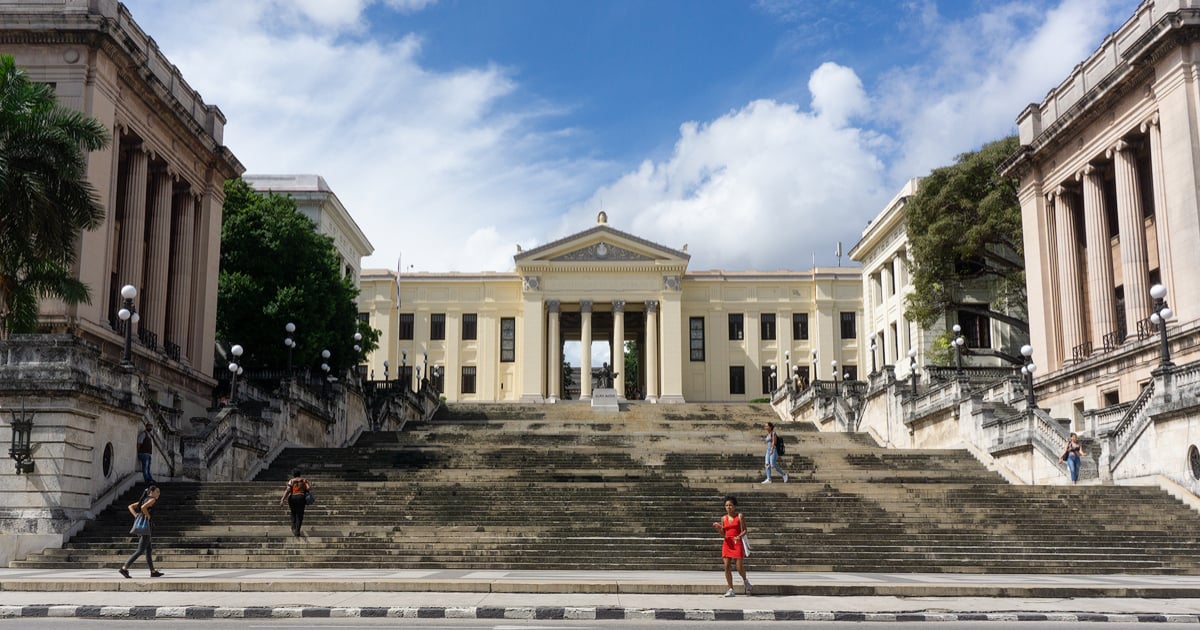University students across Cuba are increasingly joining the wave of protests against the state-run Telecommunications Company of Cuba (ETECSA). What began as isolated criticism has swiftly evolved into a widespread collective movement, questioning not only ETECSA's recent rate hikes but also the economic and political rationale behind them.
This past Tuesday, students from the Faculty of Philosophy, History, Sociology, and Social Work at the University of Havana issued a powerful statement expressing their "staunch disagreement" with ETECSA's new rates and their "absolute rejection" of the mobile data packages offered to university students. According to the statement, "our students are not protesting for sector-specific privileges but for social justice and the right of all Cuban citizens to access information, communication, work, study, and leisure."
The document, dated June 3 and signed by the faculty's student union leadership, accuses ETECSA of deliberately ignoring the social impact of its decisions. It calls for a "horizontal and transparent exchange with the country's top authorities" to find real solutions. The students also expressed solidarity with other faculties like Communication, Psychology, and Mathematics and Computer Science, supporting the indefinite faculty strike initiated by the latter.
Students Demand Accountability and Change
The statement intensifies the demands by criticizing the ambiguity and inaction of ETECSA's leadership, demanding the resignation of Ricardo Rodríguez González, the national president of the student union, for his "obvious inability to represent student interests." The students declare, "We choose not to trust in symbolic and non-binding commitments... we choose to engage, participate, and act."
This announcement adds to a series of actions and statements that have unfolded since May 30, when ETECSA announced a monthly cap of 360 CUP (less than one dollar) for national top-ups and the need to purchase additional packages in freely convertible currency (MLC), effectively in dollars. The initial public outcry came on May 31, when the national university student federation issued a statement condemning ETECSA's lack of transparency and called for a review of the new conditions imposed on students.
University of Havana at the Forefront of Change
The declaration emphasized that "a fair and equitable national project cannot be built if internet access, an essential tool for study and personal growth, is restricted." On June 1, the University of Havana's Faculty of Psychology joined the criticisms, highlighting that the new rates threatened access to knowledge, affected academic performance, and deepened inequality.
On June 2, the Faculty of Mathematics and Computer Science went further, formally calling for a boycott of academic activities until ETECSA's measures are revoked. Their statement demanded a fundamental overhaul of the telecommunications model and emphasized the need for universities to actively participate in decisions that affect their functioning.
In a bid to quell the growing dissent, ETECSA announced on June 3 that students could purchase a second 6 GB additional package for 360 CUP, totaling 12 GB monthly. They also claimed that over 40 educational websites were now free of charge. However, students from the Humanities Faculty remain dissatisfied, insisting on a structural reassessment.
Calls for Broader Internet Access
The Humanities students argue that the new rates fail to address fraud, as claimed by ETECSA executives, but instead foster new forms of informality, illegality, and inequity. They also warn against the dangers of restricting access to international content and the potential criminalization of student protests.
The statement underscores that free educational environments in universities are not the solution but a minimum requirement. "Access to the internet should not be treated as a privilege but as a citizen's right," they assert.
Prominent figures like academic José Raúl Gallego have shown support for the movement, urging that this example spread across the island. "Cuba is on fire, and the spark that marks the beginning of the end could emerge anywhere. Hopefully, the university will regain its historical place in Cuba's history," Gallego wrote on social media.
With its tradition of critical thinking, the University of Havana once again takes center stage in the national debate. This time, a new generation demands not only connectivity but also justice and genuine participation in shaping the country's future.
FAQs on ETECSA Rate Hikes and Student Protests
Why are Cuban university students protesting against ETECSA?
Students are protesting against ETECSA's recent rate hikes and the economic and political rationale behind them. They demand social justice and the right to access information, communication, work, study, and leisure for all Cuban citizens.
What actions have been taken by the students in response to ETECSA's measures?
Students have issued statements, criticized ETECSA's leadership, demanded resignations, and called for boycotts of academic activities until the new measures are revoked. They have also expressed solidarity with other faculties and defended the need for university involvement in decision-making.
How has ETECSA responded to the students' protests?
ETECSA attempted to appease the protests by allowing students to purchase additional data packages and providing free access to certain educational websites. However, students remain unsatisfied, calling for a fundamental reassessment of the telecommunications model.
